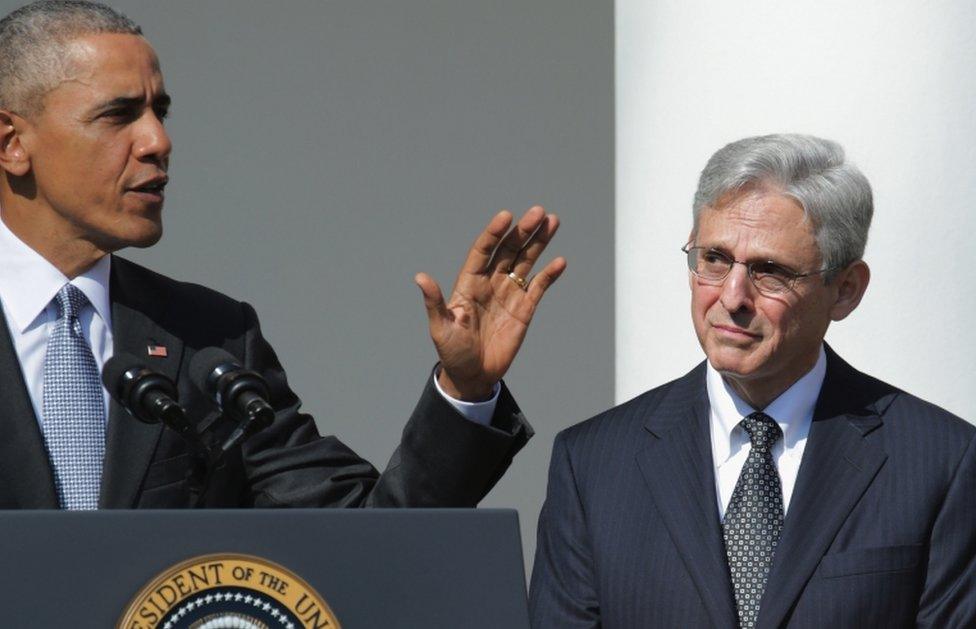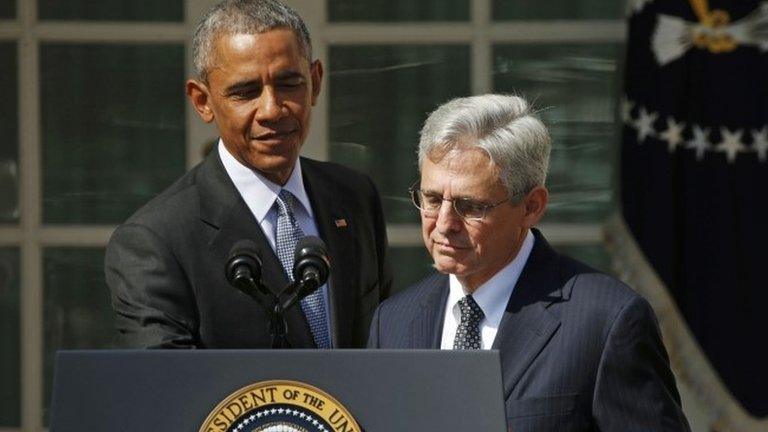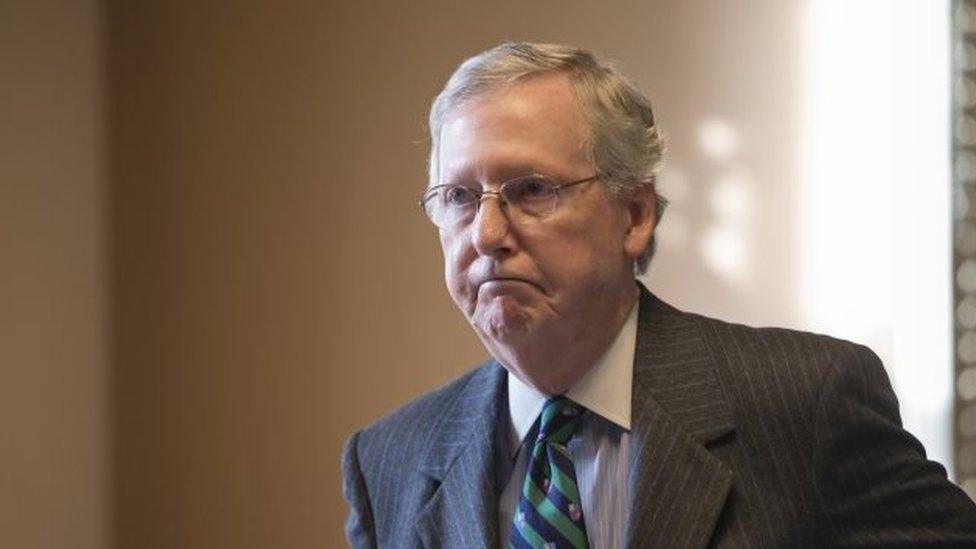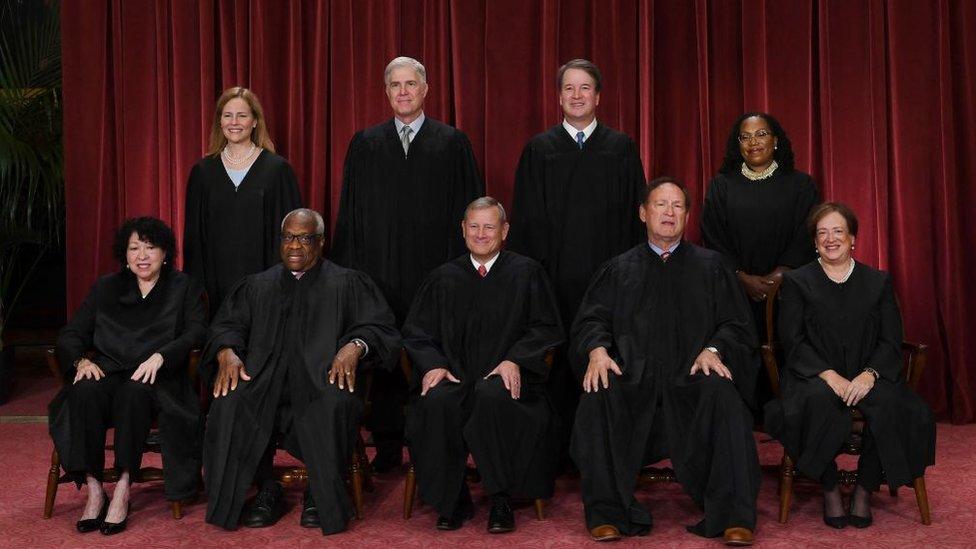Merrick Garland: Profile of US Supreme Court hopeful
- Published

President Barack Obama (left) introduced Judge Merrick Garland as his Supreme Court nominee at the White House
Veteran appeals court judge Merrick Garland is President Barack Obama's nominee to the US Supreme Court. If successful, he would replace conservative Justice Antonin Scalia, who died in February. Who is Merrick Garland?
Judge Garland, 63, is the chief judge of the Washington appeals court and a former prosecutor. The Harvard graduate would be the oldest candidate nominated for the Supreme Court since the 1970s.
Like President Obama, he comes from Chicago, Illinois, and is the son of a small business owner. He is married with two daughters.
He was appointed to the Washington, DC, appeals court by Democratic President Bill Clinton in 1997, winning confirmation in a 76-23 Senate vote. Before that, he served in the Justice Department during the Clinton administration.
He has a moderate record and a history of drawing Republican support, which may be why he has been chosen in an election year with the Senate under Republican control.
Merrick Garland
Supreme Court Nominee
-
Age: 63
-
Education: Harvard College and Law School
-
Current Job: Chief Judge, federal appeals court of Washington DC
-
Notable: Supervised investigations into the 1995 Oklahoma City bombing

Like Justice Scalia, Judge Garland has significant prosecutorial experience. In his address at the White House accepting the nomination, Judge Garland touted his experience prosecuting criminal gangs and the perpetrators of the Oklahoma City bombing in 1995.
Judge Garland said in a video , externalreleased by the White House that the experience investigating and prosecuting Timothy McVeigh, who was later put to death for the attack, was one of the most formative experiences in his legal career.
"It may be a core reason that I have this deep feeling about the rule of law," he says. "On the one hand we have to make sure that people don't settle their differences violently, and on the other hand make sure that there's a justice system that works and follows the Constitution."
He is seen as having a relatively tough record on criminal justice. A profile on SCOTUS Blog, external, which covers Supreme Court developments, says he "rarely votes in favor of criminal defendants' appeals of their convictions".
Meanwhile his views on controversial social issues likely to come before the court are mostly unknown because of his low profile on the appeals court. None of his rulings point to a clear judicial opinion on either abortion or the death penalty.
However Judge Garland's dissent in a case that struck down Washington DC's handgun ban lead some conservatives to label him a threat to gun rights.
He has favoured environmental regulations in past decisions, and courted controversy in cases to do with the the treatment of detainees at Guantanamo Bay, Cuba.
A 2010 story, external in the Washington Post says Judge Garland "sided with two conservatives in a three-judge opinion that dismissed some Kuwaiti detainees' claims that they should be able to cite lack of evidence and challenge their imprisonment at the US military base". He also backed an opinion that declared searching a detainee's groin area, external to be a reasonable security measure.
The judge was under consideration in 2009 for President Obama's first Supreme Court nomination appointment but the president chose Sonia Sotomayor.
- Published16 March 2016

- Published23 February 2016

- Published16 February 2016
- Published8 February 2024
